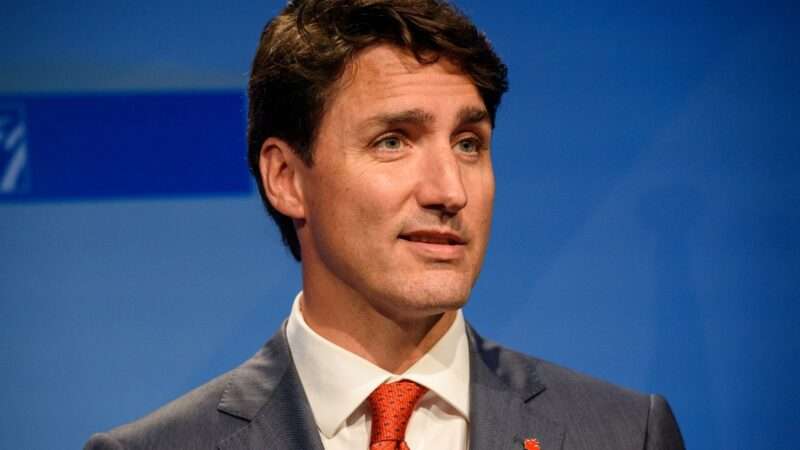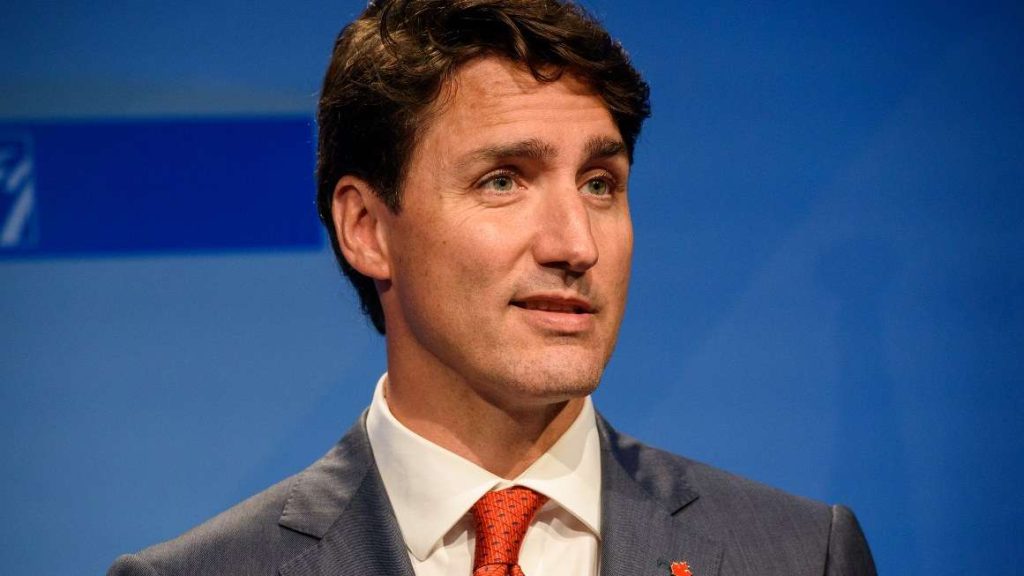
Trudeau resigns: I cannot believe I am being forced to care about Canada right now. They call their cops Mounties you know. Absurd people facing an absurd political crisis. Let’s dig in.
Prime Minister Justin Trudeau has, over his nine-year reign, become terribly unpopular. He resigned yesterday. This was semiexpected because all relevant opposition parties had vowed to mount challenges to his leadership come late January/early February, and because Trudeau’s finance minister quit last month after the two clashed.
Canadians are pissed off, like so many others around the world, with the high cost of living, which they attribute to Trudeau. Earlier in his term, he prioritized climate change–related initiatives (like a costly carbon tax) and catering to Indigenous groups. He’s prioritized letting in lots of immigrants, which many Canadians have soured on. When the pandemic hit, provincial governments imposed economically ruinous lockdowns, and Trudeau himself imposed a vaccine mandate for all those entering the country, as well as the entire federal work force. The vaccine mandate for all border-crossers, which was in place from October 2021 to October 2022, spurred the Canadian trucker convoy, an occupation of Ottawa that attempted to protest the government to change this freedom-trampling policy. Trudeau’s response was to freeze the bank accounts of people involved, in an attempt to suppress the peaceful dissent.
When he first came to power in 2015, the nepo baby (son of another former prime minister) was widely admired due to his purported good looks and charm. When Donald Trump took office in the U.S. in January 2017, Trudeau quickly positioned himself as a foil to Trump, earning adoration from America’s #Resistance left. Now, those people’s opinions don’t really matter (if they ever did at all), and normal Canadians have seen first-hand the impacts of Trudeau’s policies. He sees the writing on the wall and is attempting to minimize the damage to his party.
“This country deserves a real choice in the next election and it has become clear to me that if I’m having to fight internal battles, I cannot be the best option in that election,” he said in a press conference yesterday. In order to do that, he’s prorogued Parliament—suspending it without dissolving it.
“To allow his party’s thousands of members to choose his successor, a lengthy process that will involve campaigning, Mr. Trudeau suspended Parliament until March 24. A general election is expected to follow,” reports The New York Times. “Holding a party leadership election before a general one is par for the course in countries with parliamentary systems like Canada’s. Suspending Parliament to hold such an election is far less common. By doing so, Mr. Trudeau wards off the likely collapse of his minority government and gives the Liberals time to choose a leader unburdened by his dismal poll numbers.” In other words: Suspending Parliament is a political ploy to stop the bleeding and help his allies stay in power.
This final act seems par for the course for a man who prefers playing politics to crafting sound policy. It’s possible someone more freedom-appreciating will replace him (though I’m pretty sure 90 percent of the population qualifies as more freedom-appreciating than Trudeau). But this comes at a difficult time for Canada, as Trump mulls slapping 25 percent tariffs on all Canadian goods, partially blaming our northern neighbors for an influx of migrants and fentanyl. It remains to be seen whether Trudeau will be replaced with someone better and whether Canadians can dig themselves out of this terrible economic hole that’s been wrought by seemingly endless government spending.
Scenes from New York: The Department of Justice has released information about 60-year-old Chen Jinping pleading guilty “to conspiring to act as an illegal agent of the government of the People’s Republic of China (PRC), in connection with opening and operating an undeclared overseas police station, located in lower Manhattan, for the PRC’s Ministry of Public Security (MPS),” calling such actions “a clear affront to American sovereignty.” Ya think?
“At least 100 such stations have been reported worldwide across 53 countries, with rights groups accusing China of using the outposts to threaten and monitor Chinese nationals abroad,” reports the BBC. Naturally, “China has denied that they are police stations, saying they are ‘service stations’ providing administrative services to nationals overseas.” Sure.
QUICK HITS
- In case you missed it: Elon Musk has been tweeting about the Rotherham rape scandal that was exposed more than a decade ago, bringing fresh eyes to these heinous crimes (and, in some cases, the lack of sufficiently harsh prosecution). Pundits like Matt Yglesias have been acting like it’s ludicrous for people on today’s right to act like this story was in any way suppressed by the mainstream media at the time. I think this take (by @eyeslasho) is pretty good, though I’ll admit I did not follow the story at the time:
I was reading the same media you were reading then, and I was writing about the story, and I clearly remember how it was under-reported or (more typically) not fully reported. You rarely saw raw figures on the full extent of the abuse (or ethnicity-specific figures on the…
— i/o (@eyeslasho) January 5, 2025
- Investor/political activist Bill Ackman is expected to make the case to President-elect Donald Trump for why the president should abolish government-sponsored enterprises Fannie Mae and Freddie Mac. “The details of any plan to release the GSEs from government control get fiendishly complicated very quickly, as technocrats argue over such issues as liquidation preferences, credit risk transfer instruments, and corporate credit ratings,” reports Axios. “The result has been a quagmire and a continuation of government ownership for much longer than originally intended.”
- “The decision to block U.S. Steel’s acquisition by Nippon Steel is the perfect coda to President Joe Biden’s political career,” writes Reason‘s Eric Boehm. “By intervening in the private business affairs of the two companies, Biden is demonstrating once again his expansive view of executive power, hubristic sense of government’s ability to order economic affairs, and willingness to stretch the definition of ‘national security’ to justify his big government agenda even when there is plainly no national security threat.”
- Yesterday, the U.S. election results were peacefully certified without interruption. Donald Trump will be sworn in two weeks from now.
- McDonald’s is stepping back from its diversity, equity, and inclusion initiatives. Hilarious details from Bloomberg.
- “Less than a decade ago, colleges and universities were trusted by 57 percent of Americans and in fairly bipartisan fashion,” writes Kristen Soltis Anderson for The New York Times. “Today, Republican trust in higher education has cratered to only 20 percent, and Democrats’ has also trended downward, though at a slower pace.”
The post What’s Happening to Canada? appeared first on Reason.com.







